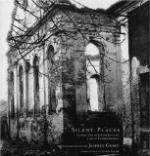The men sat about the larger fire smoking. It was the hour of relaxation. In the blaze their handsome or strong-lined brown faces lighted good-humouredly. They talked and laughed in low tones, the long syllables of their language lisping and hissing in strange analogy to the noises of the fire or the forest or the rapids or some other natural thing. Their speech was of the chances of the woods and the approaching visit to their Ojibway brothers in the south. For this they had brought their grand ceremonial robes of deerskin, now stowed securely in bags. The white men were silent. In a little while the pipes were finished. The camp was asleep. Through the ashes and the embers prowled the wolf-dogs, but half-fed, seeking scraps. Soon they took to the beach in search of cast-up fish. There they wandered all night long under the moon voicing their immemorial wrongs to the silenced forest.
Almost at first streak of dawn the women were abroad. Shortly after, the men visited their traps and lifted the nets. In this land and season of plenty the catch had been good. The snares had strangled three hares; the steel traps had caught five muskrats, which are very good eating in spite of their appearance; the net had intercepted a number of pickerel, suckers, and river whitefish. This, with the meat of the caribou, shot by Three Fingers the day before, and the supplies brought from the Post, made ample provision.
Nevertheless, when the camp had been struck and the canoes loaded, the order of march was reversed. Now the men took the lead by a good margin, and the women and children followed. For in the wooded country game drinks early.
Before setting out, however, old Haukemah blazed a fair clean place on a fir-tree, and with hard charcoal from the fire marked on it these characters:
[Illustration: random characters]
“Can you read Injun writin’?” asked Dick. “I can’t.”
“Yes,” replied Sam, “learned her when I was snowed up one winter with Scar-Face down by the Burwash Lake country.” He squinted his eyes, reading the syllables slowly.
“’Abichi-ka-menot Moosamik-ka-ja yank. Missowa edookan owasi sek negi—’ Why, it’s Ojibway, not Cree,” he exclaimed. “They’re just leaving a record. ‘Good journey from Moose Factory. Big game has been seen.’ Funny how plumb curious an Injun is. They ain’t one could come along here and see th’ signs of this camp and rest easy ’till he’d figgered out how many they were, and where they were going, and what they were doing, and all about it. These records are a kind-hearted try to save other Injuns that come along a whole lot of trouble. That’s why old Haukemah wrote it in Ojibway ’stead of Cree: this is by rights Ojibway country.”
“We’d better pike out, if we don’t want to get back with th’ squaws,” suggested Dick.
About two hours before noon, while the men’s squadron was paddling slowly along a flat bank overgrown with grass and bushes, Dick and Sam perceived a sudden excitement in the leading canoes. Haukemah stopped, then cautiously backed until well behind the screen of the point. The other canoes followed his example. In a moment they were all headed down stream, creeping along noiselessly without lifting their paddles from the water.




